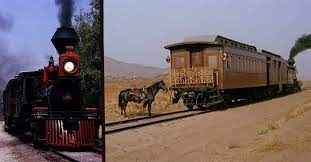Magic as Fire: In the Cracks
The two major academic models of magic have origins in the same general theory, leaning on a single ritual that draws magic to them in one fell swoop. But there are other ways of channelling magic; more time-consuming, perhaps, but more fruitful as a result. It is a technique abandoned by academia for its volatility and brutishness, but which flourishes in the cracks between the Churches.

Magic as Fire: In the Cracks
Some liken it to drawing in a breath through lungs that aren't your own; others, to bailing out a sinking boat. Either way, channelling magic is a long, drawn-out process. Channelling magic and maintaining it requires lots of Fuel, and the longer you try to maintain it, the more fuel you'll be expending.
Setting Element: Containing Magic
When a decent-sized spell builds up, it has to be contained. Most wizards contain the spell in their mind; after all, their mind is almost always on them. Others contain it in a Gong, or an a group of minds, or in a brewing pot. Whatever way it is contained, the difficulty of containing magic increases as time passes.

Setting Element: Sparking Magic, Fueling Magic
In order to cast a spell, you first need to Spark magic. This is done with equipment, or if the magic is being stored in the brain, with sheer force of will.
Setting Element: Jumphungering
When magic is called down this way, it is malleable, it is subtle, it is ferocious, but above all else, it is hungry. When magic is left unfueled or is cast, there is a chance it alights onto something and begins feeding off of it. For people who don't know how to deal with having magic feeding off them, this means a steady, painful death.
When a spell is cast, for every two results of 6+ on the dice, something nearby starts having two MD feeding on it. It's probably a person.
Setting Element: Familiars
To create a familiar, one simply needs to invest a certain number of MD into physical form. The magical creature that takes form is your familiar. Greater amounts of MD (and thus of fuel) are required to create more complex or large creatures (flight is harder to imagine into being than to not imagine into being, for example). Fuel costs for these MD are taxed once per day, not per round the creature is alive.
GloG Class: Channeler
The generic term for anyone who uses this unprofessional form of magic is a Channeler. How one uses it varies greatly.
Start with a set of Channeler's tools and probably clothes or something.
B: +1 Fuel/Turn (from your mind)
Channeling: You are a Channeler. You have a method of Channeling magic that you use to gain MD. The turn the mage begins channeling, they attempt to Spark the spell with some kind of magic check (varies by system). If they succeed, they gain 1 MD, which they must now fuel next turn.
They can continue channeling by providing fuel each turn. Fuel is needed to keep the flame going for each MD in the spell. You can provide as much fuel as last turn, or one die's worth more. You need to provide 2 fuel to kindle your 3rd MD and every MD afterwards. Kindling 2 MD costs 2 Fuel; 3 MD costs 4. For 6-7 MD, this cost goes up again.
For every fuel you don’t provide, roll the MD size you’re at. If you roll a less than or equal to the number of fuel you aren’t providing, take that much damage.
Each level, your ability to intrinsically fuel spells increases. Every MD, the size of all of your MD increase (1d3-2d4-3d6-4d8-5d10-6d12-7d20). This makes failing to fuel your spells more dangerous, and jumphungering more frequent.
Hedge Magics: choose the spellbook of any GLoG class to fuel your spells.

Comments
Post a Comment